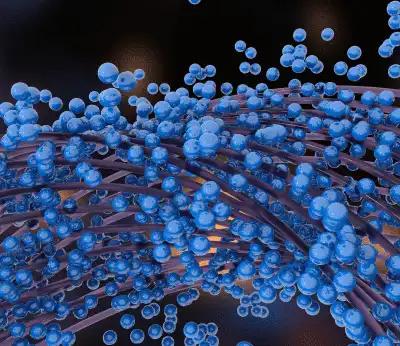KEY TAKEAWAYS
- The trial aimed to characterize MSS tumors in LS pts.
- MSS or MSI-I tumors were further assessed using MiMSI, and correlated with MMR IHC.
- The study found MSS tumors in LS pts may benefit from ICB, so orthogonal testing methods are important when sample tumor purity is low.
Lynch syndrome(LS), caused by germline mutations in DNA mismatch repair genes (MLH1, MSH2, MSH6, PMS2, EPCAM), is characterized by microsatellite instability(MSI) /mismatch repair deficiency(dMMR) tumors. Accurate MSI/dMMR assessment is critical for immune checkpoint blockade (ICB) eligibility, but discordant MSI and immunohistochemical analysis of MMR status(IHC) can occur.
Researchers aimed to characterize microsatellite stable(MSS) tumors in LS patients(pts).
The study performed DNA sequencing of LS pts(via MSK-IMPACT, NCT01775072). Their MSI status was determined using MSIsensor. The MSS or indeterminate (MSI-I), assessed through MiMSI, a highly sensitive tool for MSI detection, was used. The MSI status from MSIsensor and MiMSI was compared to MMR IHC results.
Of 405 colorectal cancer pts, 120 had stable tumors (MSS), 59 had slightly unstable tumors (MSI-I), and 226 had highly unstable tumors (MSI-H) as determined by MSIsensor. The MSI status differed among Lynch syndrome genes, with MSH6 and PMS2 being more associated with stable or slightly unstable tumors (MSS/MSI-I) than highly unstable tumors (MSI-H) (P= 0.005). Using additional analysis, 43% (63 out of 147) of MSS/MSI-I tumors were reclassified as MSI or dMMR, with 36 reclassified as MSI when MiMSI was considered. IHC confirmed the reclassified MSI status in 23 of these 36 tumors.
About 5/36 (MSI-I on MSIsensor) initially had pMMR on IHC. In 2 of these cases, MSI was driven by POLE/POLD1 somatic mutations. IHC was unavailable for 8/36 tumors reclassified by MiMSI. Of 18/36 (50%), tumors reclassified by MiMSI had low tumor content in profiled samples, a known limitation of MSIsensor. Tumors reclassified as MSI on MiMSI included those considered part of the LS cancer spectrum (8 CRC, 3 gastroesophageal, 8 endometrial, 3 ovarian, 3 urothelial, 2 brain), in addition to cancers not clearly LS associated. About 6 tumors classified as MSS/MSI-I on MSIsensor]were MSI-I on MiMSI, and 2/6 were dMMR on IHC. Amongst the 41 MSS/MSI-I tumors on MSIsensor for which only orthogonal IHC was available, 25 (11 MSS, 14 MSI-I) demonstrated protein loss consistent with the implicated LS gene. Low tumor content was noted in 44% (11/25) of tumors reclassified by IHC. Of 34 tumors found to be MSS and MMR-proficient on orthogonal analysis, the majority (88%) were in PMS2 or MSH6 carriers, representing 9 tumor types, of which 4 were considered part of the LS cancer spectrum.
The study found MSS tumors in LS pts may benefit from ICB, so orthogonal testing methods are important when sample tumor purity is low.
Source: https://ascopubs.org/doi/abs/10.1200/JCO.2023.41.16_suppl.10517
Clinical Trial: https://clinicaltrials.gov/study/NCT01775072
Emily Harrold, Chad Vanderbilt, Anna Maio, Matilde Borio, Megha Ranganathan, Margaret Sheehan, Catherine O’Connor, Yonina R. Murciano-Goroff, Michael Francis Walsh, Marie Will, Maria Isabel Carlo, Ying L Liu, Eileen Mary O’Reilly, Andrea Cercek, Kenneth Offit, Jinru Shia, Alicia Latham, and Zsofia Kinga Stadler. DOI: 10.1200/JCO.2023.41.16_suppl.10517 Journal of Clinical Oncology 41, no. 16_suppl (June 01, 2023) 10517-10517.



